Reviews include The Monkey, Parthenope, Grand Theft Hamlet.
The Tangible Humanity of Sophie Deraspe’s Shepherds
February 22, 2025
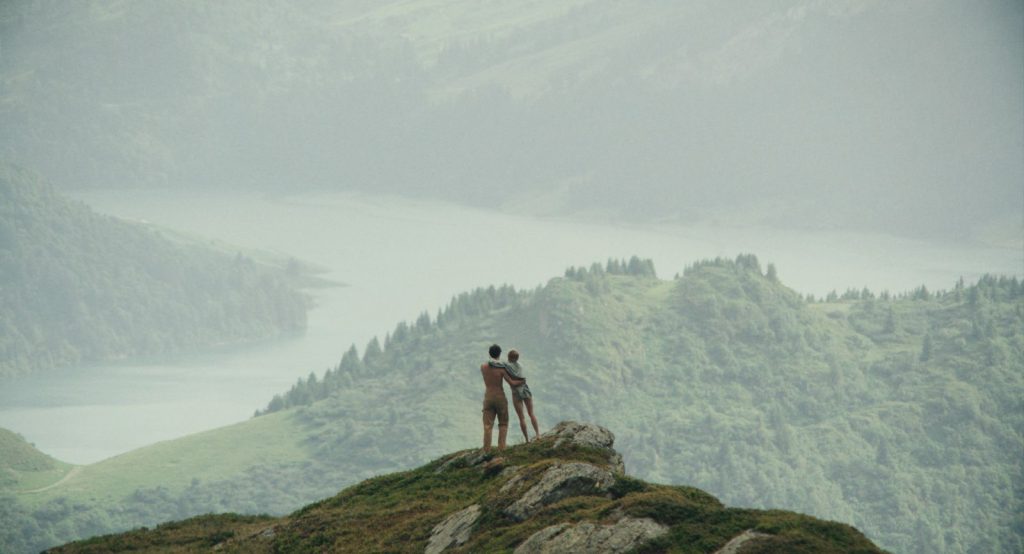
Old ways and modern realities converge on the lowland plains and alpine paths of Shepherds, Sophie Deraspe’s profound and immersive film about a young Montreal adman who decides to leave his city life to become a sheep herder in Southern France.
Shepherds is nominated for the TFCA’s Rogers Best Canada Film prize, the winner of which will be announced at the TFCA Gala on Monday February 24, 2025. The award carries a $50,000 cash prize, courtesy of Rogers. (The other nominees are Rumours and Universal Language.) Félix-Antoine Duval, the film’s lead actor, won the TFCA award for Outstanding Performance in a Canadian Film.
The prospect of spending a couple of hours ruminating about life choices while watching ruminants in the Alps sounded like the kind of cinematic experience I would probably need on the third day of the 2024 Toronto International Film Festival, which is when Shepherds had its world premiere. But Deraspe’s film—which ended up winning TIFF’s jury-selected Best Canadian Feature Film award—offers so much more than pastoral escapism, I discovered.
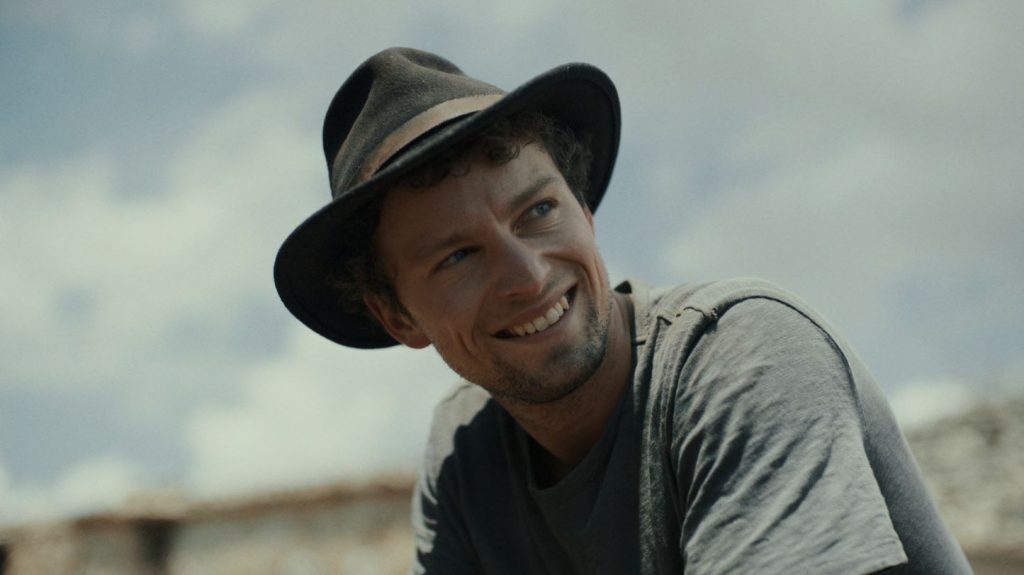
With a writer’s notebook in tow, aspiring shepherd Mathyas Lefebure (played with quiet warmth and lithe physicality by Duval) uses his sloganeering skills to convince the local bergers to give him a chance. It all feels like rollicking fun until reality sets in and the isolated milieu, gruelling rhythms, and dark side of the life begin fraying his resolve.
Just in time, Elise (played by French actress Solène Rigot) arrives to tell the brooding Mathyas that she has quit her civil service job and intends to join him. The story shifts dramatically from a kind of one-dimensional quest (Mathyas wants to write about becoming a shepherd) into a shared transformative journey into the mountains, as the pair lead the herd toward summer grazing.
During the Q&A following the premiere, we learned that Shepherds was sparked by the 2006 roman à clef by Lefebure, who has a co-writer credit on the film. Shepherds’ authentic vibe is further enhanced by the brave choice to shoot on location in France, where Quebec cinematographer and Steadicam-operator Vincent Gonneville also captured real events, such as lamb births, raging storms, and the transhumance. (Fun fact: Transhumance is defined as “the seasonal movement of people with their livestock between geographical or climatic regions” by UNESCO, which recently added the practice to its Representative List of the Intangible Cultural Heritage of Humanity.)
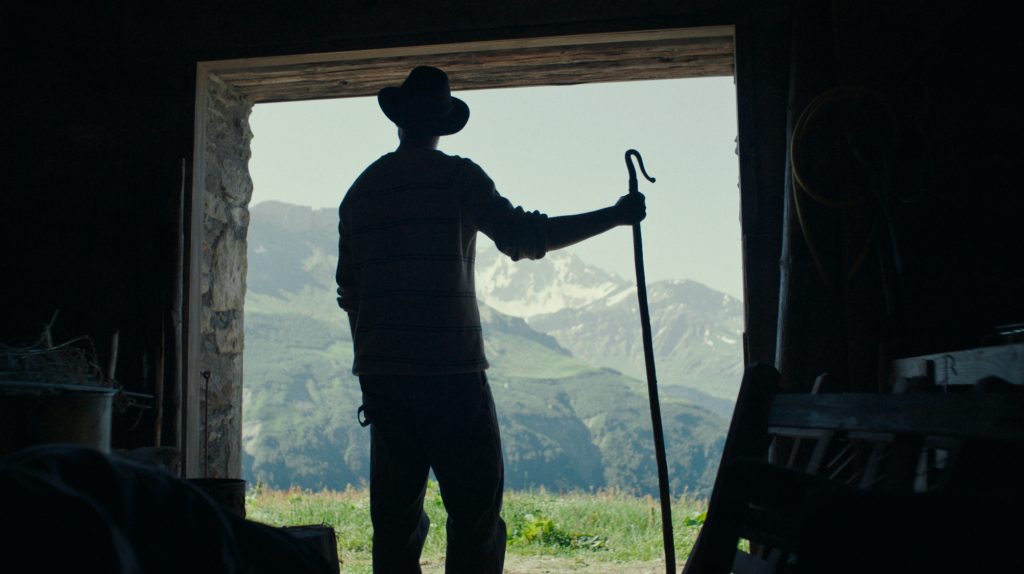
Deraspe, whose 2019 film Antigone won TIFF’s best Canadian feature prize and five 2020 Canadian Screen Awards, told me during a conversation in January that she was surprised at the strong box office performance of Bergers (French title), which was released by Maison 4:3 in Quebec in November 2024 and was still in cinemas there when we spoke. (It had a run at The Fox in Toronto in early January.)
“There are no stars, it’s not a comedy—this is a film that needs word of mouth,” she said. “I was afraid people would think they have seen this kind of film before—someone leaving their life, returning to nature. It was important (for me) to avoid tropes and cliché. From the reception at TIFF and other festivals I could see that it was connecting with audiences.”
The events that inform Lefebure’s book unfolded in the early 2000s; Deraspe, who read his book in one sitting, began seriously thinking about a film in 2015. “The book is well written, and the author knows so much about philosophy, sociology, art, music, and pop culture,” she said. “The mix of this is super fun to read but it doesn’t make a film, right?
“But this idea of changing your life and going for something absolutely different—something that would also be visually attractive—there is something there for a film. It’s not a postcard, it’s aiming at something higher, something almost spiritual.”
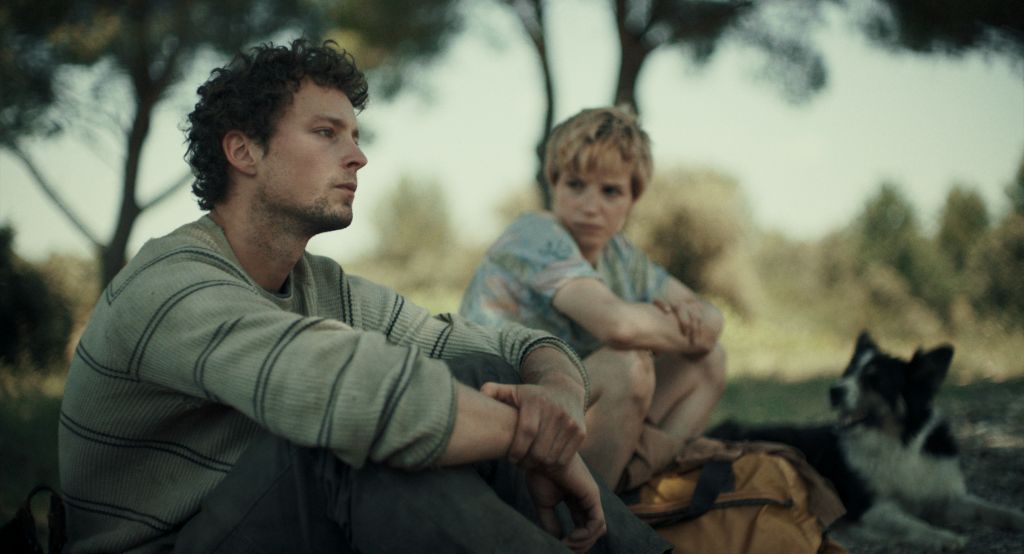
One of the most significant thematic additions, from book to screen, is the effect of climate change on the herders’ livelihood. “In the early 2000s, we were not speaking about climate change as much as we do now. I knew it had to be in the film,” Deraspe continued. “The research, the location scout, and especially the meetings with the real shepherds who do the transhumance in the mountains—the talk of the moment is climate change because they are on the front line.
“If there’s no winter, there’s no water. The snow brings water not only to the herds, and the villages, but also to the cities.”
During the research and scouting process, Deraspe knew the film needed to be about “how precious, unique, and almost magical it is to be alive on Earth. In a way, the connection with the herd opens up this wider connection to nature and also to yourself. It also opens you up to love and connection with another human being.”
On the ground level, much like the experience of the fictional Mathyas, the realities of the place and practice presented unique challenges to the production. It was one thing to find herders and herds to work with; it was another to wrangle these creature into the context of a feature film production schedule.
“With the animals and with the seasons, everything moves, we needed to connect with many different herders and herds,” Deraspe said. “With so many of them, it sometimes felt like—how are we going to manage?
“We are a crew of forty, although for some scenes there were fewer than that. So where are these people going to live and sleep and eat? We needed to work in the mountains, and it couldn’t be too accessible because we would have the sounds of motors, because there are a lot of tourists visiting the Alps, we don’t want to have electric wires.”
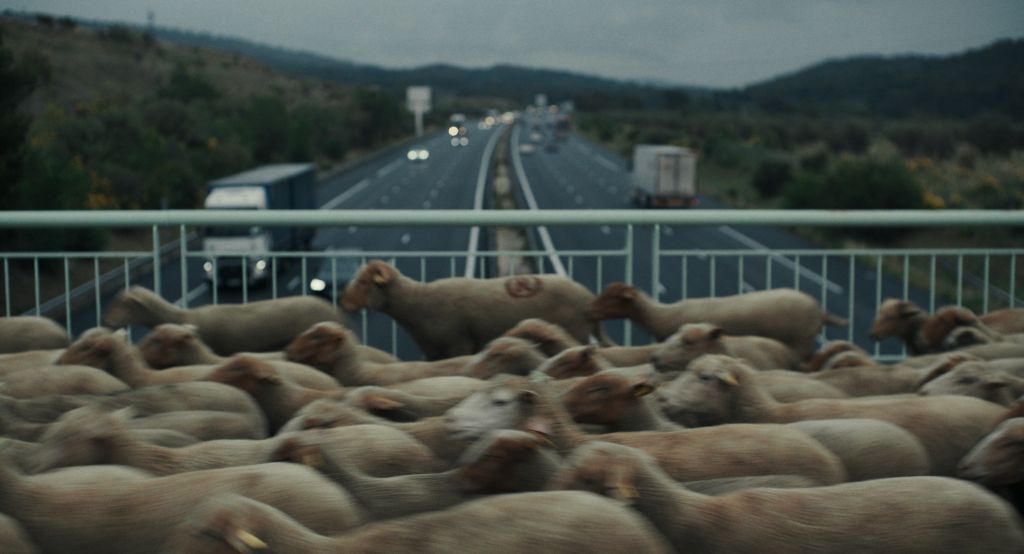
For the stunning transhumance scene, three herds were required in order to convey the distance and time travelled in the fictional story. “The sheep needed to have the same stamp, because we were working in fiction and we have to consider continuity,” Deraspe explained. “We had to prepare a year in advance in order for all those herds to have the same stamp, which is a non-toxic paint that stays with the animals until they are sheared. So we had to convince the shepherds to do this, because they are so proud of their own tags.”
The depth of experience from Montreal production company micro_scope, as well as the dedicated, collaborative crew—the work of production manager Isabelle Tillou is described in heroic terms—allowed Deraspe to sleep at night. “I had to let go of all the control that we usually need to have over production when we work in fiction,” she said. “Letting go and being confident that nature, reality, and the good connection that we have with people are going to make it work.”
The winner for Rogers Best Canadian Film will be announced on Feb. 24.
Shepherds is now playing in select theatres and is available on VOD.



